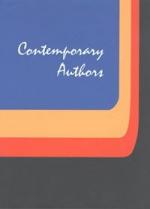|
This section contains 703 words (approx. 3 pages at 300 words per page) |

|
SOURCE: “Miscellaneous,” in Modern Fiction Studies, Vol. 30, No. 2, Summer, 1984, pp. 399-403.
In the following excerpted review essay, Kellman offers tempered assessment of Literary Theory, concluding that it should be read with a “blend of enthusiasm and wariness.”
Although it mentions neither Wellek nor Warren, Literary Theory: An Introduction seems to aspire to be the Theory of Literature for a poststructuralist world, a more overtly partisan examination of the most influential schools of literary theory in recent decades. A Marxist with wit, Terry Eagleton is magisterial in his deployment of a wide range of ideas, but rarely dispassionate. However, after patient scrutiny of the writings of numerous contemporary critics, Eagleton confesses that he has not come to praise theory but to bury it. He rejects the claim that literary theory is a coherent discipline:
It is an illusion first in the sense that literary theory, as I hope to...
|
This section contains 703 words (approx. 3 pages at 300 words per page) |

|


